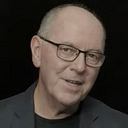Definition of Creativity Copyright Claim
Why is a Definition of Creativity Important
“In the 21st century, the primary differentiator between humans and Artificial Intelligence/Machine Learning systems is the skill of creativity. Creative thinking must be encouraged and celebrated throughout our entire life, starting from a young age.”-Greg Twemlow, Founder of Creativitee
Sir Ken Robinson, “in place of curiosity, what we have is a culture of compliance. Our children and teachers are encouraged to follow routine algorithms rather than to excite that power of imagination and curiosity. Human life is inherently creative. It’s why we all have different résumés. We create our lives, and we can recreate them as we age. It’s the common currency of being human. It’s why human culture is so interesting and diverse and dynamic.”
There remains a misconception that creativity is solely the province of the arts. This is not true. Creativity exists in all disciplines. It is valued by mathematicians, scientists, and entrepreneurs, as well as by artists, writers, and composers.
Ironically there aren’t inspirational definitions for “Creativity”. It seems strange really to think that attempts at defining creativity are quite bland.
“As competition intensifies, the need for creative thinking increases. It is no longer enough to do the same thing better . . . no longer enough to be efficient and solve problems” — Edward de Bono
Defining creativity (from the report “Developing young children’s creativity: what can we learn from research?”, autumn 2004, issue 32)
Definitions of creativity are not straightforward, and many writers have contributed to the debate about what constitutes creativity, often hotly contesting different views. However, most theorists agree that the creative process involves a number of components, most commonly:
• imagination
• originality (the ability to come up with ideas and products that are new and unusual)
• productivity (the ability to generate a variety of different ideas through divergent thinking)
• problem-solving (application of knowledge and imagination to a given situation)
• the ability to produce an outcome of value and worth
Where definitions of creativity differ most strikingly is the extent to which their proponents are attempting to identify creativity as a generic human characteristic, or to define what makes highly creative people special and different from others. This is the distinction between what the Robinson Report calls the ‘democratic’, as opposed to the ‘élite’, definition of creativity. Howard Gardner adopts an élite definition of creativity when he argues that truly creative people are those who make a difference to the world (e.g. through forward-thinking in science, social science, music or art). This type of ‘Big C’ creativity is reserved for very few individuals. The report of the UK National Advisory Committee for Creative and Cultural Education, chaired by Professor Ken Robinson, adopted a democratic view of creativity. It argued that this was the most useful way of viewing creativity in relation to education (5, para. 25)
“All people are capable of creative achievement in some area of activity, provided that the conditions are right and they have acquired the relevant knowledge and skills.”
Definition of Creativity by Greg Twemlow
Copyright © 2020: “Solving by asking open questions that elicit thoughtful replies, exposing new knowledge to inspire non-obvious, novel solutions and artistic works.”
About the author: Greg Twemlow is a Sydney-based Social Enterprise Founder | Startup Mentor | CEO | Writer | Speaker | Podcaster | Founder of Creativitee
